As a parent, the decision of which educational path to choose for your child can be quite overwhelming. The Central Board of Secondary Education (CBSE) often comes up in conversations, praised for its structured and holistic approach to learning. But what sets it apart from other educational systems?
CBSE is known for its well-rounded syllabus that provides students with a strong foundation in various subjects, including mathematics, science, and languages. It is designed to foster critical thinking and problem-solving skills, preparing students for a range of future educational paths.
This article delves into the strengths and potential pitfalls of the CBSE syllabus, offering guidance to help you understand if it's the right fit for your child. With useful insights and practical tips, we aim to assist you in making this significant decision.
- Why CBSE Stands Out
- Benefits of CBSE for Children
- Challenges and Considerations
- Comparing CBSE with Other Syllabuses
- Tips for Parents on Choosing a Syllabus
Why CBSE Stands Out
The CBSE syllabus is celebrated for its structured yet flexible curriculum, designed to serve as a strong foundation for young learners across India and beyond. As an educational board, CBSE has consistently adapted to the evolving demands of the academic world, ensuring students are well-equipped for both national competitive exams and global educational opportunities. With practical approaches to teaching, its curriculum emphasizes conceptual learning rather than rote memorization, a significant advantage for children as it prepares them to think critically and adapt swiftly.
One major factor that makes the CBSE syllabus shine is its focus on holistic development. The board promotes the development of not only intellectual abilities but also physical, emotional, and social skills. With activities and programs woven into the curriculum, students find themselves engaging in a wide variety of co-curricular activities. This approach aids in nurturing well-rounded individuals who are capable leaders and thinkers. By offering subjects like Environmental Studies and Life Skills, CBSE ensures that students are more aware of their surroundings and are better equipped to handle real-world challenges.
The consistent structure of CBSE is another hallmark. With a nationwide standardization of textbooks and assessment patterns, students who move between schools or cities find the transition much smoother. This becomes even more relevant in today’s highly mobile societies where families frequently relocate due to professional commitments. Uniformity across schools ensures that every student enjoys a comparable quality of education, be it in metropolitan cities or remote rural areas. Such standardization also facilitates fair assessment, as the students' capabilities are gauged on the same criteria nationwide.
"The CBSE curriculum is designed in such a way that it keeps pace with global educational trends while building on our strengths. It caters to developing analytical thinking and problem-solving skills, which are crucial for the 21st-century workforce," remarked a noted education analyst.
Moreover, CBSE’s focus on technology integration is a significant factor in its widespread appeal. The board encourages schools to incorporate technology into daily teaching, thus helping students become proficient in using digital tools. With projects and assignments that foster collaborative learning, students are motivated to explore beyond textbooks, enhancing their understanding through digital platforms and resources.
Finally, the emphasis on competitive exam preparation is a standout benefit. The CBSE syllabus aligns well with major national competitive exams like the IIT-JEE and NEET, offering resources and practice materials extensively. This alignment ensures that students are not only covering the required academic territory but are also strategically prepared for these critical examinations without the need for additional external coaching. Parents see this as a significant advantage, saving time and resources while ensuring their children are well-prepared for these pivotal exams.
Benefits of CBSE for Children
The Central Board of Secondary Education, known as CBSE syllabus, is highly regarded not just in India but worldwide, including our own Sydney neighborhood. It's a favorite among parents who value a balanced academic structure which emphasizes comprehensive learning. One key benefit is that the CBSE curriculum is aligned with numerous entrance examinations such as IIT-JEE and AIIMS, making it an attractive option for students aiming to pursue higher education in countries like India. This alignment ensures that students don't need to juggle contrasting agendas, allowing them to concentrate effectively on their studies. The curriculum's consistency in promoting logical reasoning and analytical skills from primary school onward stands out as one of its major strengths.
Another salient advantage of the CBSE system is its focus on a child-centric and inclusive learning environment. It adapts teaching methods to suit a variety of learning styles, which is beneficial for nurturing a well-rounded education. By integrating co-curricular activities with traditional academic subjects, CBSE fosters an environment where creativity is highly encouraged. This aids in discovering and building an array of skills that aren’t limited to the academic sphere alone. As many educators advocate, 'Education is not the learning of facts, but the training of the mind to think.'
Albert Einstein once said, "Education should be aimed at developing the mind's ability to think intensively and critically."
Moreover, the extensive choice of subjects available within the CBSE syllabus gives students the liberty to tailor their academic journey according to their strengths and interests—be it in science, commerce, or the arts. This flexibility can foster passion and investment in one's learning path, forming a foundation for lifelong learning. Moreover, CBSE textbooks, especially in subjects like science and mathematics, are structured according to the NCERT guidelines. The content is curated by experts — offering students not only quality material but the chance to explore subjects in depth. It also offers students the chance to engage with projects that enhance practical understanding. This practical integration is a brilliant stepping stone for real-world applications.
Let's not forget the level of attention CBSE gives to regional languages alongside English and Hindi. While English remains the primary medium of instruction, recognition of regional languages is integral, allowing a richer connection to cultural roots which is particularly significant in our globally interconnected society. This language policy provides an inclusive touch that adds another dimension of ease for students transitioning internationally.
A recent survey conducted by educational researchers indicates that CBSE schools show a significant rise in student performance across standardized assessments.
| Year | Performance Increase |
|---|---|
| 2022 | 5% |
| 2023 | 7% |
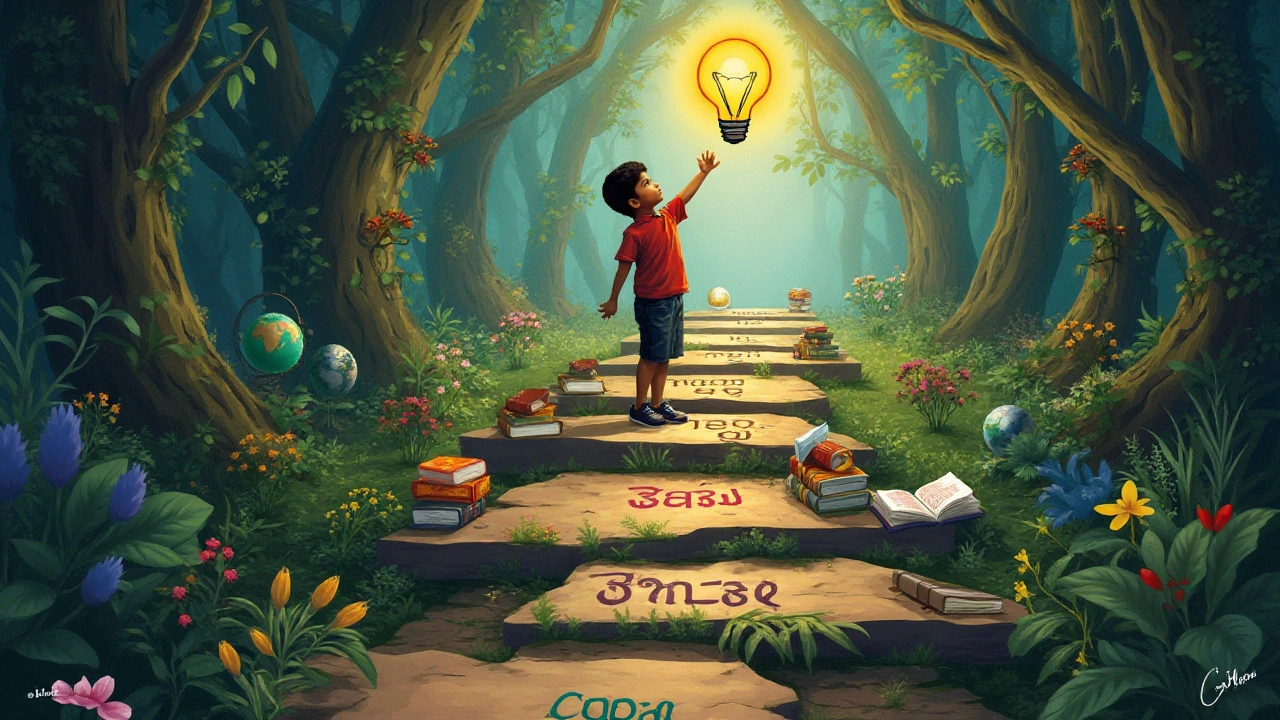
Challenges and Considerations
While the CBSE syllabus is lauded for its academic rigor and broad curriculum, it also presents some challenges that parents and students must navigate. One of the primary concerns is the high level of competition associated with CBSE schools, which can sometimes lead to undue stress for students. This stress often stems from the system's emphasis on examination-based assessments, creating an environment where rote learning can overshadow real understanding and comprehension. For young minds, this environment can become overwhelming, especially when paired with societal expectations for academic excellence.
There is also the matter of how the CBSE board prescribes a standardized curriculum, which may not always cater to individual learning styles. Every child learns differently, and a one-size-fits-all approach might not be the best for those who thrive in less conventional settings. The structured nature of the education system can sometimes stifle creativity and discourage students from exploring subjects outside the mandated syllabus. Parents may need to compensate for this by providing additional resources or extracurricular opportunities to nurture creativity and innovation.
"Education is not the learning of facts, but the training of the mind to think," remarked Albert Einstein, highlighting the need for a balance between factual knowledge and critical thinking.
Another consideration is the overwhelming volume of information that students are required to absorb. The intense pace at which the curriculum is delivered can leave little room for a deeper exploration of topics, potentially reducing the joy of learning to a series of to-do lists. This kind of learning model might suit some students perfectly but can be lackluster for those who prefer to linger over subjects and dig deeper into concepts.
Parents should also take into account the geographical availability of CBSE schools, particularly if they are considering relocation. In many parts of Australia and several international locations, finding high-quality CBSE-affiliated institutions can be a daunting task. The issue of availability and accessibility becomes even more pressing when you account for the competitive admissions processes prevalent in many CBSE schools. Many parents have come face-to-face with lengthy waiting lists and demanding entry requirements, which can be a significant hurdle.
Overall, assessing these challenges requires an understanding that education is a deeply personal journey. It's important for parents to regularly communicate with their children about their schooling experiences. Are they overwhelmed, or are they managing well? Are they feeling pressured, or are they enjoying the learning process? Regular check-ins can help navigate these nuances, ensuring the chosen syllabus truly aligns with the child's needs.
Comparing CBSE with Other Syllabuses
Exploring different educational systems is essential, especially when choosing the right learning path for a child. The CBSE syllabus has garnered attention worldwide for its methodical yet flexible approach to education, but it competes with other robust systems. The International Baccalaureate (IB) curriculum, for instance, emphasizes a student-centered approach, nurturing inquisitive minds through research-oriented tasks. Such an approach can encourage independent learning, fostering critical thinking but sometimes can lack the structured progression that CBSE advocates with its consistently designed curriculum path.
Similarly, other syllabuses like the International General Certificate of Secondary Education (IGCSE) often provide a variety of subject choices, facilitating learners to explore different fields extensively. While beneficial for multidimensional growth, such flexibility sometimes overwhelms the students who might not be mature enough to handle diverse subjects efficiently. CBSE, contrastingly, offers a balanced curriculum with ample focus on both core subjects and practical work, aiming to develop sound analytical skills in learners.
The different boards also affect assessment methods significantly. Where CBSE focuses heavily on periodic assessments with high-quality academic rigour, the IB and IGCSE may lean more towards project-based evaluations, allowing students to demonstrate their understanding through extensive research and practical activities. This might lessen the stress of final exams but can lead to heavy workloads throughout the academic year. Parents, therefore, might want to consider their child's learning style when choosing between these syllabi: a structured annual exam system versus continuous assessment.
"Choosing a syllabus for your child means evaluating strengths and looking abreast beyond academic offerings," suggests Dr. Mary Horton, an educational consultant whose insights have steered numerous parents towards informed choices.
It’s also noteworthy that geographical preferences often dictate the choice of syllabi. CBSE, being developed in India, aligns closely with entrance exams for professional courses in the country. Conversely, IB and IGCSE are more globally recognized, easing transitions if your child plans to pursue higher education abroad. These aspects of the syllabus not only shape a child’s academic journey but also create keystones for future prospects. Comparing the different syllabuses with these parameters sharpens the decision-making process, helping parents like you navigate education's complex landscape.
Deciding on which path to embrace should consider not just academic but also extracurricular offerings that cultivate a holistic educational environment. The aptness of CBSE or its alternatives can vary child by child, which emphasizes the role of parents in customizing their educational roadmap.
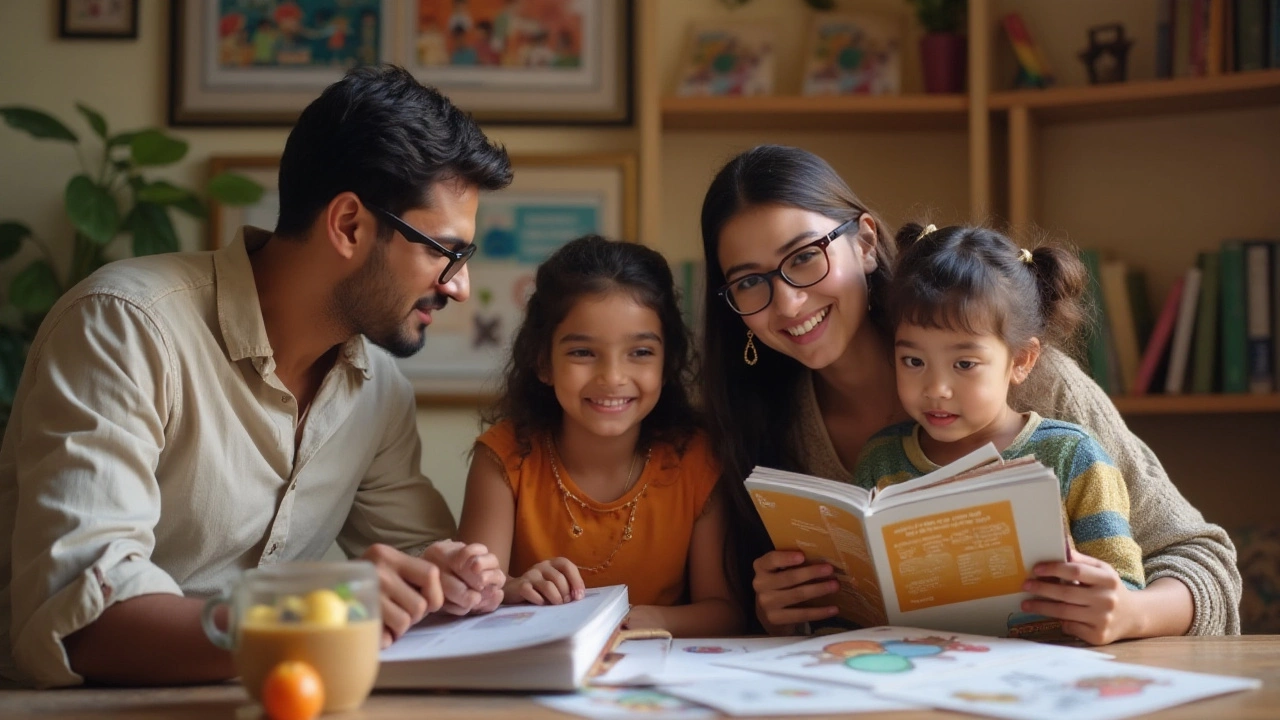
Tips for Parents on Choosing a Syllabus
Navigating the educational landscape to find the best fit for your child's learning can feel like a monumental task. With the diversity of curricula available today, it's important to consider several factors before making a decision. The CBSE syllabus is one among many, known for its structured approach and broad content coverage, but it's crucial to align it with your child's unique needs and aspirations. Begin by assessing your child's interests and abilities. Does your child thrive in a structured system with clear academic goals, or do they excel in settings that encourage creativity and self-direction? Understanding their learning style can help you match them with the right syllabus.
Another aspect to consider is the school's teaching methodology. Some schools blend the CBSE syllabus with innovative teaching methods to cater to different learning styles. Visiting schools and speaking with educators can provide insights into how a particular curriculum is being implemented. “Education is not the filling of a pail, but the lighting of a fire,” as W.B. Yeats once said, reminding us that the delivery of information can often be just as critical as its content. Keep an eye out for schools that foster a passion for learning, rather than just focusing on grades.
One practical approach is to create a list of priorities. What are the most important elements of education for your family? Are you looking for strong discipline and rigorous academics, or do you prioritize creativity and sports? Knowing what truly matters to you can help narrow down your choices. Additionally, examine the education system's long-term benefits. Does it prepare students for entrance into top-ranked universities, does it facilitate transferability to other systems in case of relocation, and how do its pass rates line up with your goals?
Explore feedback from both parents and students who are currently part of or have completed the CBSE program. Online forums and local parent groups can be invaluable resources in gathering authentic experiences. Remember that comparison with other syllabuses like ICSE or state boards might also be beneficial to understand the distinct advantages each offers. It's worth noting that no system is perfect, and thus compromises might be necessary in certain areas.
If education quality metrics are of importance to you, consider the following data regarding CBSE examination results:
| Year | Pass Percentage | Top Institutional Affiliation |
|---|---|---|
| 2022 | 94% | Kendriya Vidyalayas |
| 2023 | 96.5% | Private Schools |
Finally, involve your child in the decision process. Their opinion and willingness to adapt can greatly affect their educational journey. Engaging in conversations about their aspirations and concerns can you lead to a more informed choice. Keep the channels of communication open and reassure them of your support in exploring new challenges. Whichever path you choose, remember that a engaged, supportive environment at home remains critical in nurturing their ambition and love for learning.
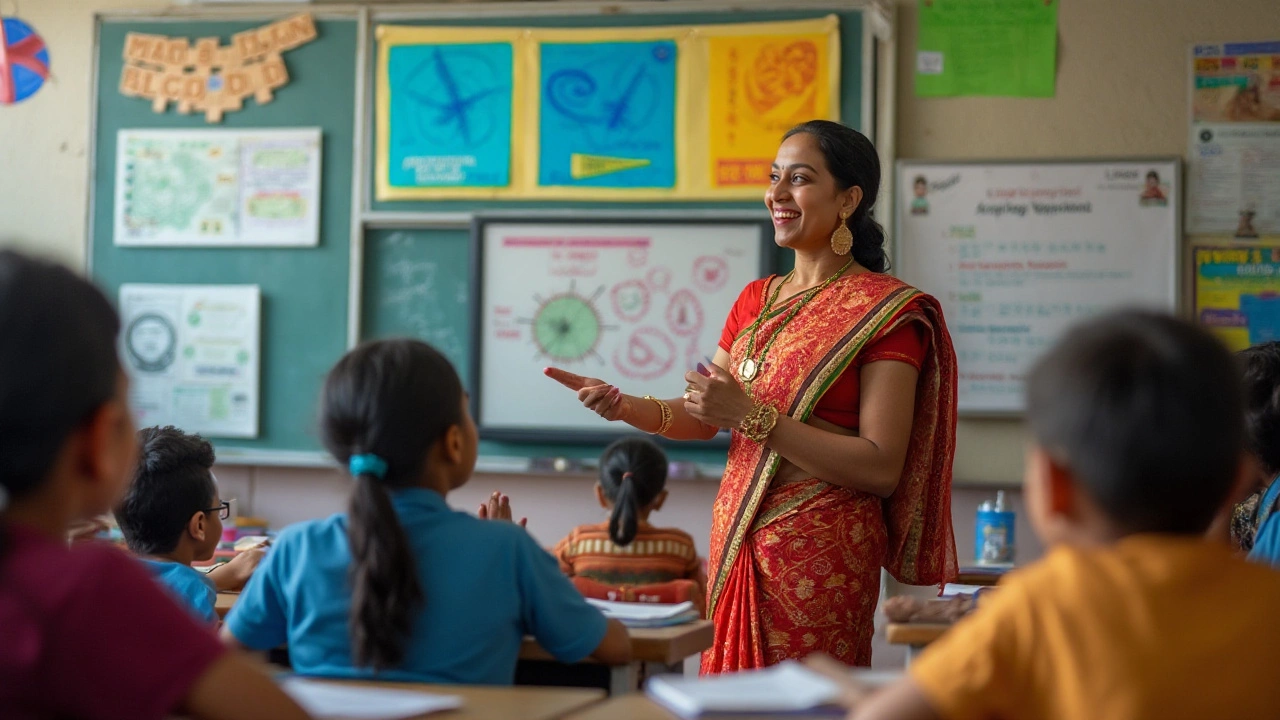


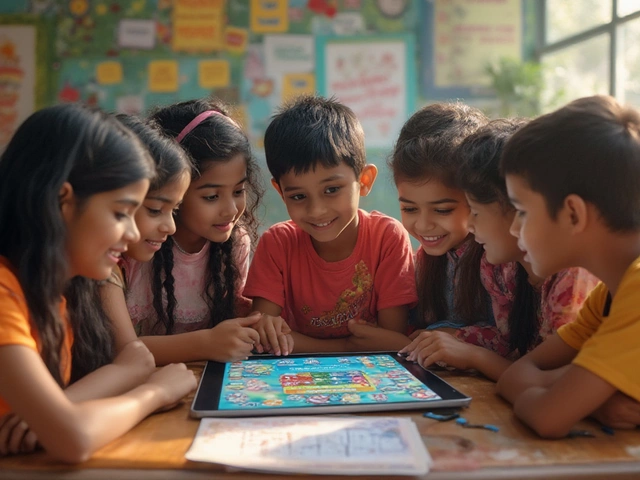
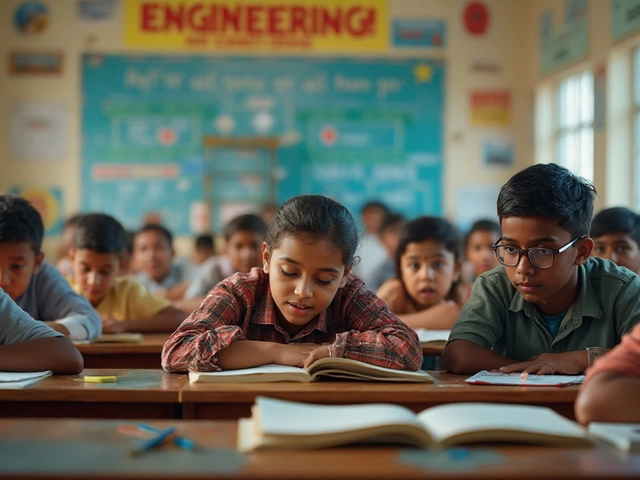

Write a comment: